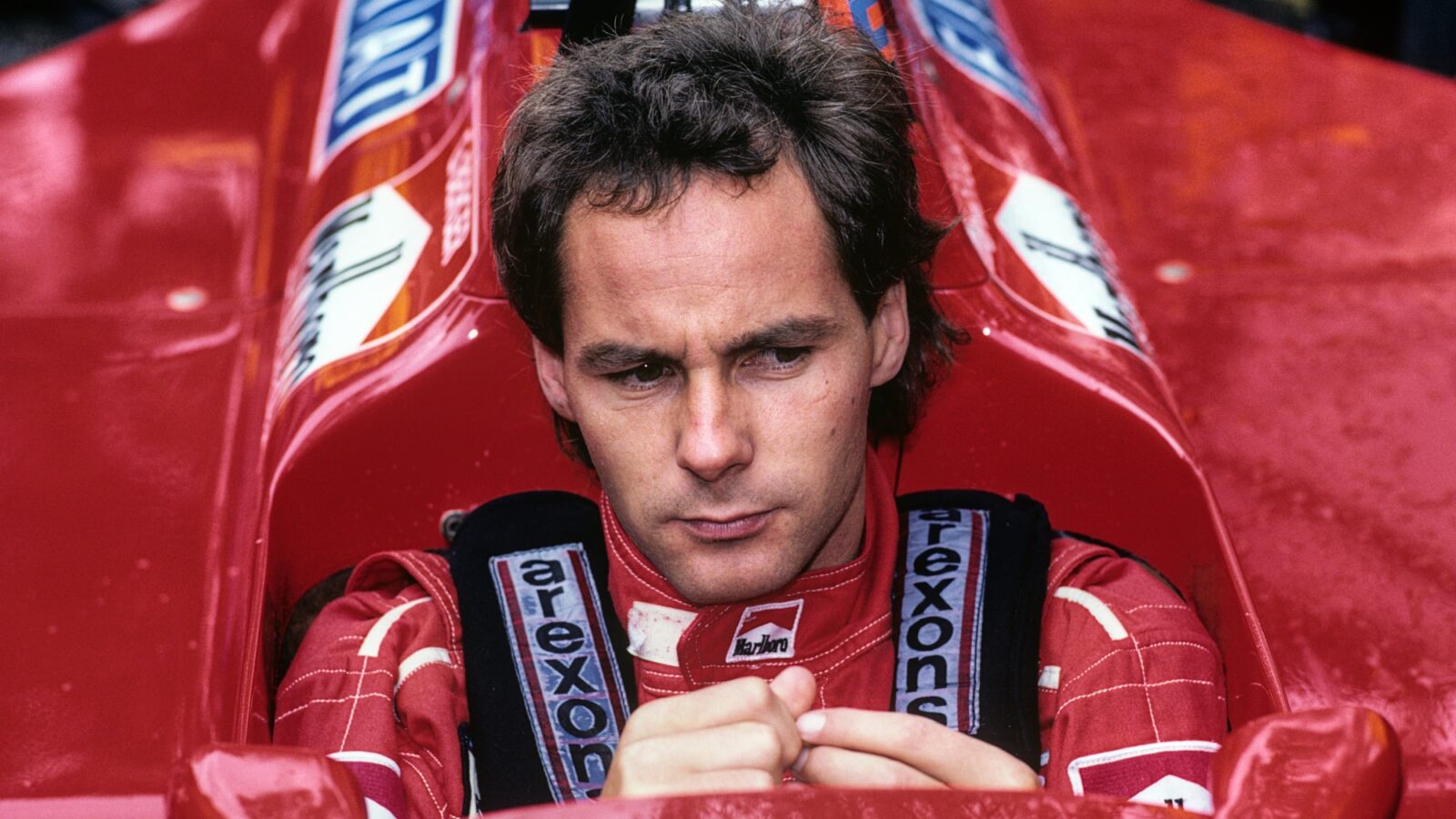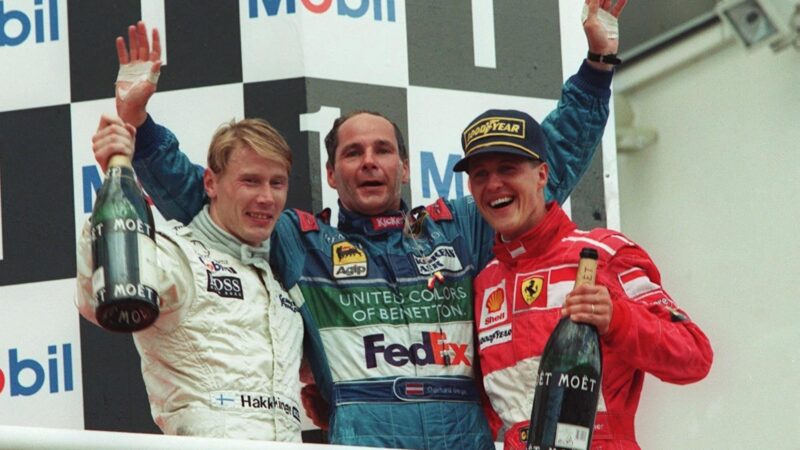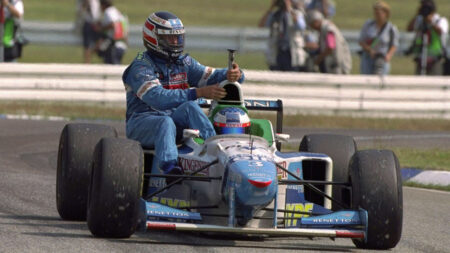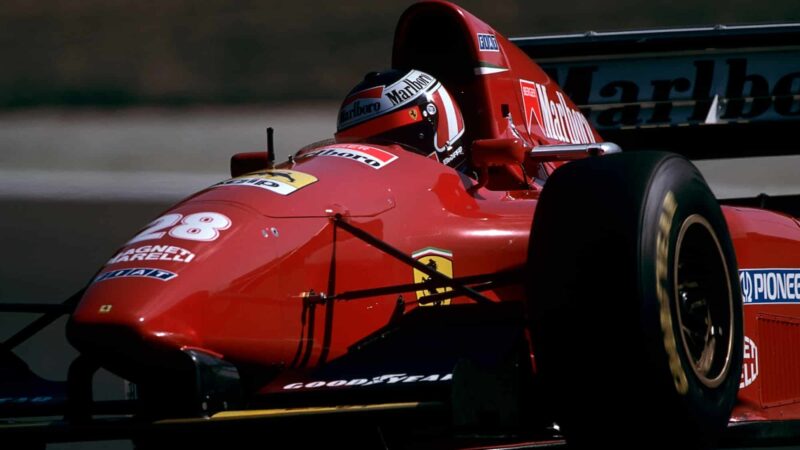“The thing about Ayrton, that put him on a separate level, was that he didn’t respect any conditions. In qualifying, I would go out, set third-fastest time and say, ‘That’s it. The two Williams are ahead, they’re quicker than we are, so that’s the best I can do’. For Ayrton, though, the Williams did not exist. In his mind, the only thing that existed was himself – and he had to be first. And, you know, by this thinking he was able to create a power. That’s the only word I can use. There would be a car that, on paper, was a second a lap quicker, and you knew you couldn’t beat it. Ninety-nine per cent of drivers will accept that and say, ‘Well, next week well have a new engine and we’ll be right up there.’ For Ayrton, no. He’d say, ‘I have to be the quickest’ — and he’d do it! It wasn’t that he was dreaming. He did it! And it would be the same in the race.”
In the course of his three years at McLaren, Berger learned a great deal from Senna, but he believes that Ayrton, too, benefited from their partnership. “As people, we were entirely different, which is probably why we became friends. For sure, he had strengths where I didn’t, but I think it was true the other way round, too. I could always easily separate working time from free time, but Ayrton could not do that, and I think, when I arrived at McLaren, I made him even stronger, because he became freer. I believe, through me, he learned to laugh, and then he began to do the same things I did. He seemed to discover a sense of humour, as if it was something he had had all along but never used.”
Berger thinks Senna and Michael Schumacher are very similar, in terms of working practices with engineers, team-mates and so on. “The only difference is the personalities: one was a Latin, the other is a cold German.”
If his victory at Hockenheim in 1997 was emotionally the most satisfying of his life, Berger’s best from a driving point of view came in the ’87 Australian Grand Prix — perhaps because it involved a fight with Senna.
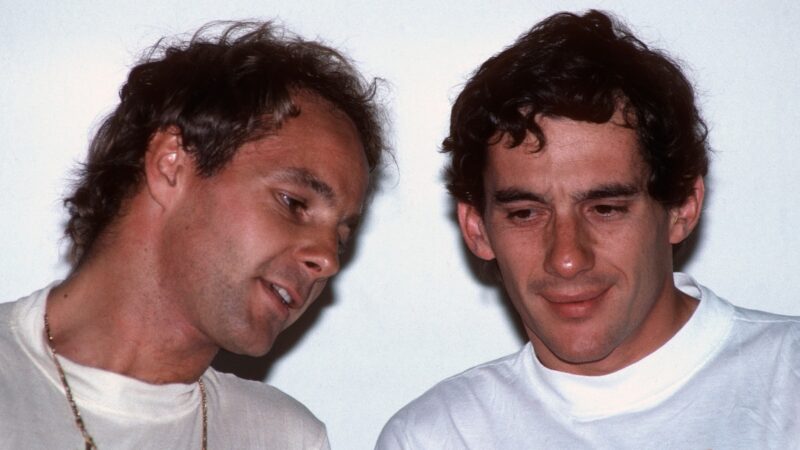
Berger and Senna share a word in Portugal in 1991
Paul-Henri Cahier/Getty Images
“For a start, that year’s Ferrari turbo was my favourite of all the cars I ever drove — it just suited me so well. I won at Suzuka with it, and then we went to Adelaide; I got pole position and led from the start. But I had a fever that weekend, and it was also very hot. Ayrton started catching me and, physically, I was completely finished, but I really wanted to beat him – and also I was in the middle of doing a new contract! Ayrton was still coming, so I put the boost up to make him think that I could easily respond – and he backed off. Then I reduced the boost again, and I couldn’t go quick any more because I was f*****! Anyway, it worked.”
In the course of 13 seasons of F1, Berger drove in 210 grands prix, and qualified either first or second in 32 of them. That being so, one might have expected him to have won more than 10. He doesn’t disagree.
